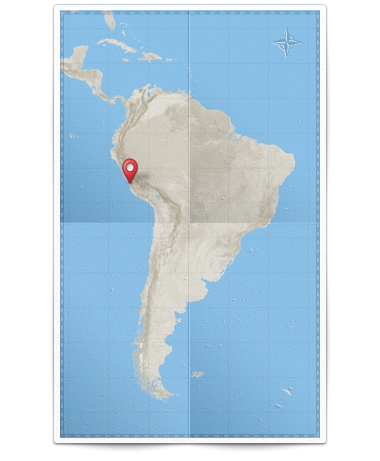Lima, Peru
Over the past two decades, Peru has become known as an international center for HIV and STI research. Participating SAPHIR institutions including Asociacion Civil Impacta Salud y Educación (“Impacta”), Asociación Civil Vía Libre (“Vía Libre”), Universidad Peruana Cayetano Heredia (UPCH), and the US Naval Medical Research Unit 6 in Lima-Callao (NAMRU-6) have contributed to the development of a dynamic research environment with a sophisticated infrastructure for completing social, behavioral, clinical, and basic science research related to HIV/AIDS. In addition to UCLA, other international institutions collaborating with Peruvian investigators on HIV-related research include Harvard University, Johns Hopkins University, UCSF, University of Washington, Yale University, and University of Connecticut; as well as UNAIDS/WHO, CARE, and the Gates Foundation.
Asociación Civil Impacta Salud y Educación (“Impacta”)
Impacta is a research center and clinical trial unit focused on the diagnosis, management, and prevention of HIV and STIs in Latin America. Impacta was founded in 2000 as an international site of the AIDS Clinical Trial Group (ACTG), HIV Prevention Trials (HPTN) and HIV Vaccine Trials (HVTN) networks of the NIH. As leaders in biomedical HIV prevention, they have played a central role in major international clinical trials, including the iPrEx study of Antiretroviral Pre-exposure Prophylaxis and the HPTN 039 study of HSV-2 suppression and HIV infection, and current work addressing new strategies to improve diagnosis, detection, and linkage to care of MSM with undiagnosed HIV infection. In addition to network-based studies, they have also collaborated with investigators from the University of Washington, UCSF, University of Connecticut, and Harvard and Yale Universities on clinical and epidemiologic studies of HIV and STIs among MSM in Peru.
Research Areas: Epidemiology of HIV/STIs; Clinical Trials; Biomedical HIV Prevention (Pre-Exposure Prophylaxis and Microbicides)
SAPHIR Faculty: Jorge Sanchez, MD, MPH; Javier R. Lama, MD, MPH
Website: www.impactaperu.org
Asociación Civil Vía Libre (“Vía Libre”)
Vía Libre is Peru’s oldest community-based HIV/AIDS service organization. Vía Libre was established in 1990 to provide health care and prevention services for people living with or at risk for HIV infection. Since then, Vía Libre has expanded its original mission to include clinical trials and community-based research related to HIV and STIs in marginalized populations including men who have sex with men (MSM), transgender women (TW), female sex workers (FSW), and women and children affected by HIV. To accomplish its mission, Vía Libre has collaborated with local community organizations as well as universities including UPCH, University of Washington, Johns Hopkins University, and UCLA, and international non-governmental organizations including HIVOS, UNAIDS/WHO, CARE, and the Global Fund to Fight AIDS, TB, and Malaria.
Research Areas: Epidemiology of HIV/STIs; Clinical Trials; HPV Prevention; Community-Based Approaches to HIV Diagnosis and Prevention
SAPHIR Faculty: Robinson Cabello, MD; Magaly Blas, MD, PhD
Website: www.vialibre.org.pe
Universidad Peruana Cayetano Heredia (UPCH)
Universidad Peruana Cayetano Heredia is Peru’s most prestigious private medical university and a center for basic science, clinical, and public health research. Within the Facultad de Salud Pública “Carlos Vidal Layesca”, SAPHIR mentors include faculty from the Unidad de Estudios de Salud Sexual y Desarollo Humano (Center for Studies of Sexual Health and Human Development; Director: Carlos Cáceres) and the Unidad de Epidemiología de ITS y VIH (Center for Epidemiology of HIV and STI; Director: Patricia Garcia). Both groups have conducted major international research studies on HIV/STI epidemiology and prevention, including the NIH International Collaborative HIV/STD Prevention trial based on a Community Popular Opinion Leader (CPOL) model of behavioral change within at-risk populations, and the PREVEN Urban Community Randomized Trial of STD/HIV Prevention which used a multi-component social and structural intervention to reduce STIs in urban communities in Peru. UPCH investigators have a long-standing history of international collaboration including recent work with UCLA, UCSF, University of Washington, and Tulane University.
Research Areas: Epidemiology of HIV/STIs; Structural Approaches to HIV Prevention; Operations Research; Biomedical Informatics
SAPHIR Faculty: Carlos F. Cáceres, MD, PhD; Patricia J. Garcia, MD, PhD; Alfonso Silva-Santisteban, MD, MPH
Websites: www.upch.edu.pe; www.iessdeh.org
U.S. Naval Medical Research Unit-6 (NAMRU-6)
U.S. Naval Medical Research Unit-6 (NAMRU-6) was established in 1983 through an agreement between the Surgeon Generals of the Peruvian and U.S. Navies, with the support of the U.S. Department of State and the Peruvian Ministry of Foreign Affairs, to study infectious diseases of mutual interest. The goal of NAMRU’s research and surveillance efforts is to enhance the operational readiness of U.S. forces and to improve the public health of the populations of the countries in the region. Current research includes surveillance of genotypes and circulating recombinant forms (CRFs) of HIV in Central and South America, monitoring for antibiotic resistance in circulating STIs, and assessment of risk factors for HIV and STI acquisition. NMRCD plays an important role in training researchers and other health professionals from the U.S. and Latin America through workshops and training programs in tropical medicine, emerging infectious diseases, and the ethical conduct of research in international settings.
Research Areas: Molecular Epidemiology of HIV Infection; Epidemiology and Resistance Patterns of Gonorrhea; STI Diagnostics
SAPHIR Faculty: Silvia Montano, MD, MPH; Roxana Lescano (Ethics); Andres Lescano (Biostatistics)
Website: http://www.med.navy.mil/sites/NAMRU6/Pages/namru6.htm

Applications for the 2025-26 Fellowship class are now being accepted. The priority application deadline for the 2025-26 Fellowship class is March 7, 2025.
